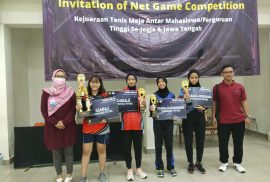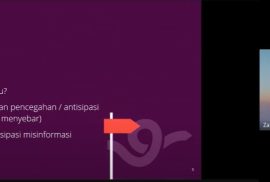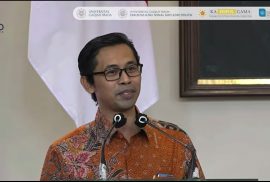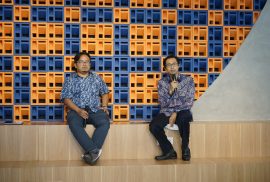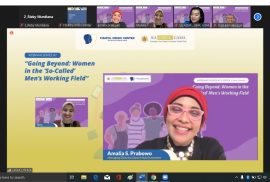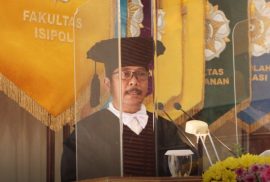News
Friday, 18 March 2022
Yogyakarta, March 18th 2022─The Center for Digital Society (CfDS) collaborated with the Ministry of Communication and Information of the Republic of Indonesia, and the National Digital Literacy Movement SIBERKREASI launched the 2022 Digital Intelligence Class course. The event was officially opened on (18/03) with several speakers, namely Dedy Permadi, a representative from the Ministry of Communication and Information, Tasya Kamila, and Fiki Naki as a representative of Indonesia’s digital talent. This continues to grow and in its development will provide considerable economic opportunities in Indonesia. “Therefore, the need for technology-savvy talents is urgently needed in this era, and this class facilitates capacity building and knowledge for this,” said Dedy as the opening remarks for this afternoon’s event.The Digital Intelligence Class will discuss several things including critical thinking, design thinking, privacy and data protection, digital communication, digital ethics, and digital governance.
Guiding the course of the event, Anisa Pratita as the moderator gave some discussion questions. Starting from Kominfo, Anisa tries to find out what breakthroughs have been made by Kominfo, and about what homework needs to be done together.
Responding to this, Dedy said that Digital Intelligence Classes have been held since 2020 and in collaboration with 120 community institutions and institutions in Indonesia. Considering that this class requires cooperation from various parties, together with public figures, content creators, activists on women’s issues, children’s issues, and others, the Ministry of Communication and Information seeks to implement inclusive and collaborative digital literacy. Basically, there is still a lot of homework, but the point is that every individual must be responsible for using existing digital developments. In this case, young people must always be positive, creative, and productive. read more


